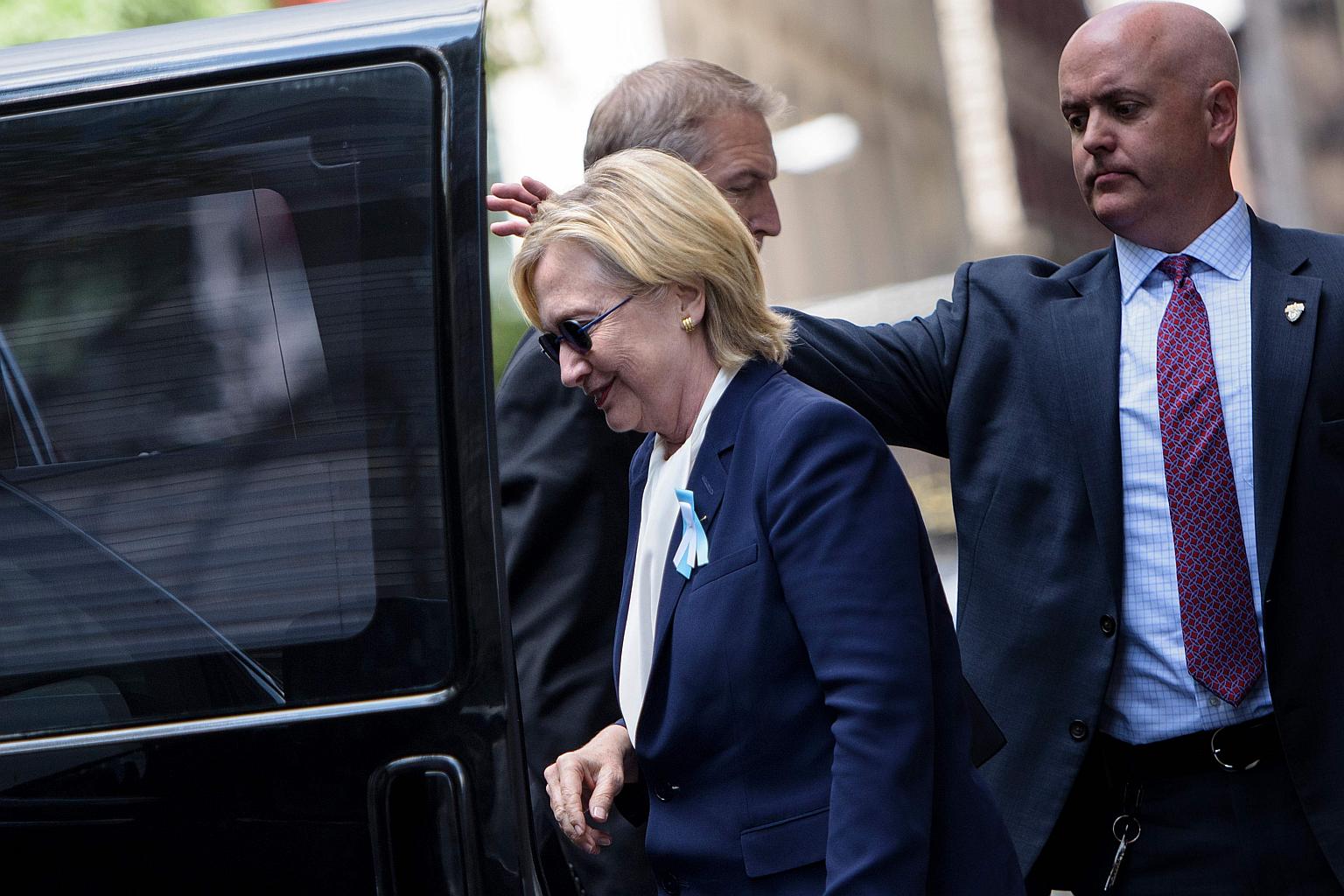Hillary Clinton has pneumonia: Some facts about the illness
Sign up now: Get ST's newsletters delivered to your inbox

US Democratic presidential nominee Hillary Clinton gets in her car while leaving her daughter's apartment building after resting on Sept 11, 2016, in New York.
PHOTO: AFP
Follow topic:
NEW YORK (NYTimes) - Mrs Hillary Clinton, the Democratic presidential nominee, has pneumonia, her doctor said in a statement on Sunday (Sept 11).
Here are some facts about the illness; what it is, what it does and how people recover:
Q: What is pneumonia?
A: Pneumonia is a common lung infection that affects millions of people each year. It is most often caused by bacteria, though viruses account for up to one-third of the cases in the United States each year, according to the National Heart, Lung and Blood Institute. Fungi and other germs can also cause pneumonia.
When germs reach the lungs, the immune system responds by sending cells to attack them. Those cells can cause air sacs in the lungs, known as alveoli, to become inflamed or fill with fluid and pus, causing the symptoms of pneumonia.
Q: Who is at risk?
A: While pneumonia is a common lung infection that most healthy people overcome, the illness can be more serious for people 65 or older, according to the National Heart, Lung, and Blood Institute. Mrs Clinton is 68.
The illness also tends to be more serious for infants, young children and people with other health problems.
Q: What are the symptoms?
A: The severity of symptoms depends on the type of pneumonia a person has, as well as the person's age and health.
Typical symptoms include coughing, fever, chills and shortness of breath, according to the American Lung Association. Other symptoms can also include chest pains, headache, excessive sweating, clammy skin, loss of appetite and low energy. Older people sometimes experience confusion.
Bacterial pneumonia can drive the body's temperature as high as 40.6 deg C, resulting in sweating, rapid breathing and confusion or delirium. With viral pneumonia, symptoms are typically more similar to influenza: fever, dry cough, headache or muscle pain.
While treatment for pneumonia can act quickly, related fatigue can last for a month or more, according to the National Heart, Lung and Blood Institute.
Q: How does recovery occur?
A: Bacterial pneumonia can be treated with antibiotics, with most people showing signs of improvement within one to three days of treatment. Antibiotics do not fight viral infections, but doctors may prescribe them for viral pneumonia in order to prevent further infection. Drinking fluids and resting can also help.
In the statement, Mrs Clinton's doctor did not identify the type of pneumonia the candidate has, but said she was prescribed antibiotics and advised to rest.
It can take as little as a week for a healthy young person to feel normal again, according to the lung association. But it could be weeks before a middle-aged person regains their strength and feels normal again.
Older adults are also one group that is more likely to have complications in recovery.

